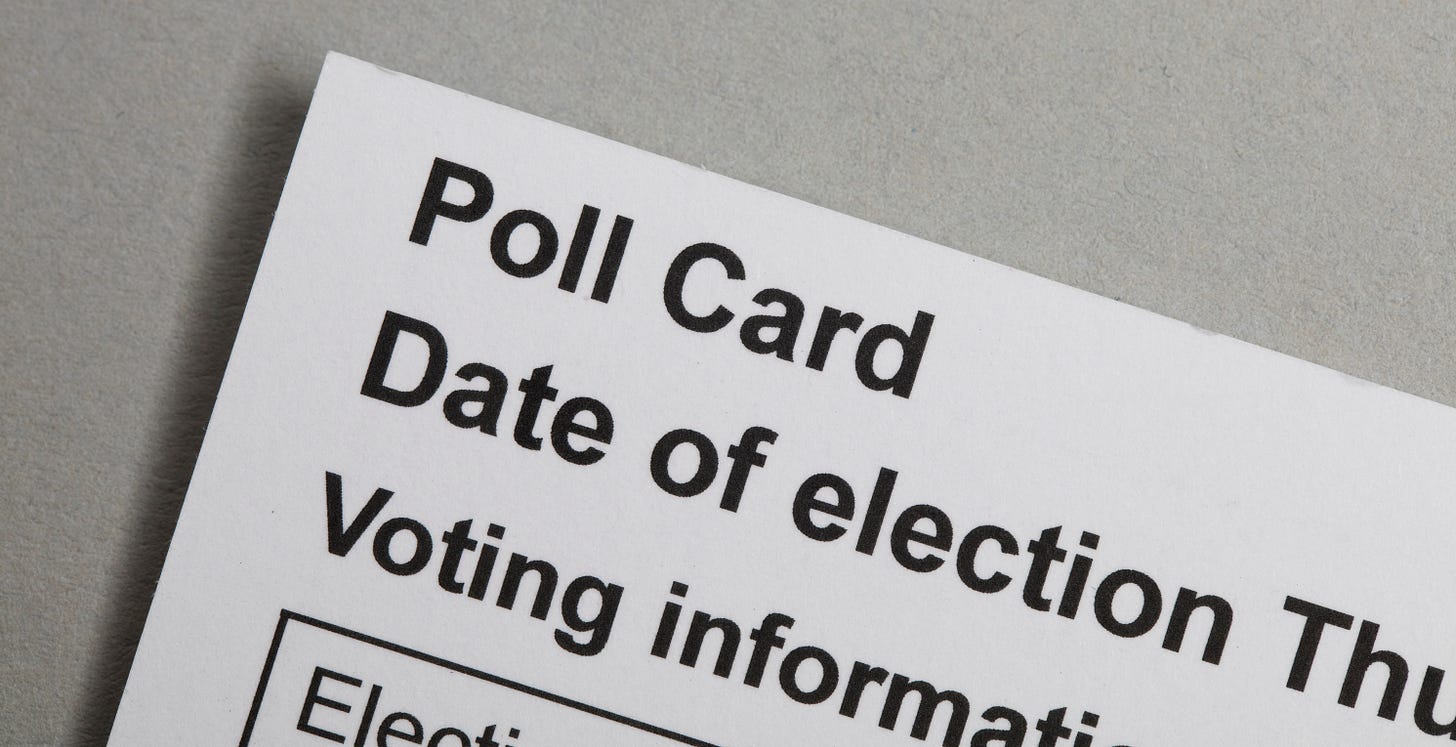By the numbers elections
A deep dive into the history of Kent's Police and Crime Commissioner elections
Editor’s note: With the Kent Police and Crime Commissioner election approaching, we decided to examine the history of these strange elections in Medway. To do this, we’ve drafted in Alan Collins Rosell, founder of Medway Elects, an incredible little website that tracks the full electoral history of our towns. He gives his analysis of past elections and what might happen in this one.
Don’t forget that our Kent Police and Crime Commissioner debate is taking place tonight at MidKent College in Gillingham. Tickets will be available until around 3pm, so please book one if you’d like to come along. Unfortunately, we won’t be able to grant entry to anyone who hasn’t booked a ticket in advance for this event.
By the numbers elections
by Alan Collins Rosell
Once in a generation, an election comes along that has the potential to bring in a seismic change in UK society. Think Atlee in 1945, heralding in the National Health Service, Thatcher in 1979, heralding in a free market free-for-all, Blair in 1997, heralding in the most successful era in Labour’s history, or Cameron in 2010, heralding in the first formal coalition government since the Second World War. And, later, Brexit.
With the Conservatives trailing dismally in the polls, the General Election expected to take place in the second half of this year may well be just as seismic. But, dear reader, this article is not about that election. For there is another, almost as important election to look forward to first.
Yes, I am talking about the Police and Crime Commissioner election this coming May.
It will be the fourth election taking place for the force’s elected figurehead and candidates of three parties have declared as standing: the Conservatives, Labour and the Lib Dems.
Independents
In almost any other analysis, it might seem strange to start by considering independent candidates, especially given no independent candidates are standing. However, such was the uproar about “politicising” the police, no fewer than 54 independent candidates stood in the 41 PCC areas in the inaugural elections in 2012, with 11 being elected. That furore died down quickly, however, as only three independent PCCs were elected in 2016, with none elected in 2021.
Kent was no exception. Ann Barnes, the chair of the Kent police authority, the oversight body the PCCs rudely replaced, stood as an independent candidate after being reprimanded for campaigning against the introduction of PCCs against impartiality rules imposed on police authority members. Despite calling the policy “naïve and dangerous” and a “wilful waste of public money” which would “inevitably lead towards a confrontational model of governance”, her declared campaign spending for a role she didn’t believe in was £64,676, of which £50,000 came from an inheritance from her parents. Her gamble paid off, and she was elected after the second round of voting, with 46.8% of first preference votes.
Also in the running in 2012 was Dayantha Liyanage, a former mayor of Medway and Liberal Democrat councillor for Gillingham South on Medway Council, Park Wood on Gillingham Borough Council and Gillingham North West on Kent County Council. He was suspended by (and subsequently resigned from) the Liberal Democrats after endorsing the since-disgraced Labour MP Paul Clark in the 2010 General Election, so was well-placed to stand as an independent candidate in 2012. Unfortunately for Liyanage, however, he came last with just 3.7% of the vote.
Having dutifully served her term, Barnes decided against re-standing in 2016. In her stead came independent candidate Gurvinder Sandher, the CEO of the Kent Equality Cohesion Council. Sandher had served as the county chair of the Independent Police Advisory Group between 2009 and 2013 and as an independent member of the police and crime panel from 2012. With his background, he might have hoped he could follow in Barnes’ footsteps, and he did poll a respectable 9.8%, beating the Liberal Democrats and English Democrats. However, he came fourth behind the Conservatives, UKIP and Labour.
No independent candidates stood in 2021, and none have declared to stand in this election.
Conservatives
Keep reading with a 7-day free trial
Subscribe to Local Authority to keep reading this post and get 7 days of free access to the full post archives.


